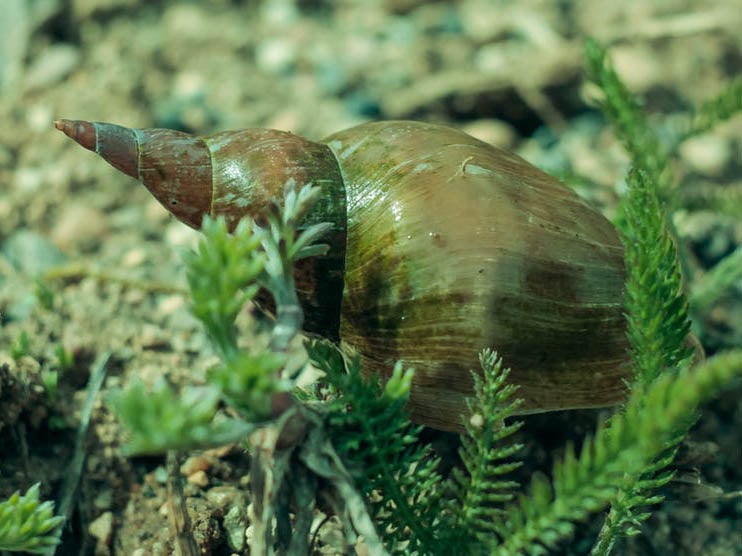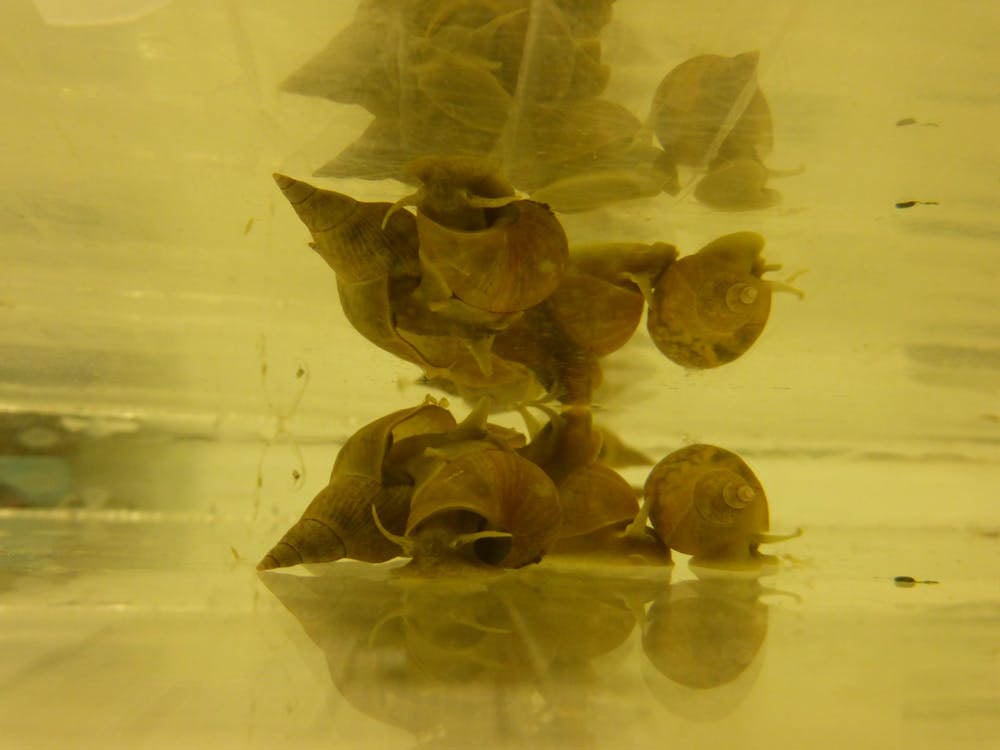How lonely snails could change how we measure human intelligence
We often think of social isolation as a human problem but it can radically alter a snail's cognitive functioning

Your support helps us to tell the story
From reproductive rights to climate change to Big Tech, The Independent is on the ground when the story is developing. Whether it's investigating the financials of Elon Musk's pro-Trump PAC or producing our latest documentary, 'The A Word', which shines a light on the American women fighting for reproductive rights, we know how important it is to parse out the facts from the messaging.
At such a critical moment in US history, we need reporters on the ground. Your donation allows us to keep sending journalists to speak to both sides of the story.
The Independent is trusted by Americans across the entire political spectrum. And unlike many other quality news outlets, we choose not to lock Americans out of our reporting and analysis with paywalls. We believe quality journalism should be available to everyone, paid for by those who can afford it.
Your support makes all the difference.In numerous different animals, cognitive ability, including learning and memory, is often negatively affected by stress. But not all individuals of a particular species are equally good at cognitive tasks to begin with, and they respond to the effects of stress in different ways.
Take pond snails, specifically Lymnaea stagnalis, for example. They, just like other animals (including humans), remember things about different aspects of their environment. They remember smells that are associated with good things to eat, for instance, as well as negative experiences which may be associated with the risk of being eaten themselves. But not all snails are equally good at remembering. Some snail populations, originating from different rivers or ditches, are much better at forming memories than others.
My own previous research found that a 30 minute operant conditioning training session – whereby a stimulus is applied each time an animal performs a specific behaviour, in this case a gentle poke – produces a memory of the stimulus lasting about three hours in snails from some populations, and 24 hours (which is long term memory for snails) in others. We also found that two 30 minute training sessions result in a memory lasting a day in snail populations with weak memories, and seven days in populations with strong memories. So it seems some populations are “smarter” than others when it comes to forming memories of the training.
Other research that I worked on found that the “smart” pond snails also appear to be more robust to some types of stress. When they are deprived of calcium in the water they live in (which they need to build their shell), smart snails still form long-term memory following two training sessions. But long-term memory is blocked in snail populations which form a weak memory.
However, not all types of stress can be considered equal. Each type can have a different effect on an animal. In humans, for example, different types of stress can cause short-term emotional problems, while others can lead to long-term physical health issues. And in snails, we have found that one type of stress – social isolation or loneliness – can change the way they form memories.
Social isolation and snail stress
While we often think of social isolation as a human problem, it can affect all types of animals, including snails. Snails’ reproduction is already known to be affected by social isolation. Snails are hermaphrodites (they have both male and female reproductive organs), and normally mate in both the male and female role when they meet a partner. But researchers have found if they are isolated for a week they prefer to just mate in the male role.
For my recently published study I wanted to find out more about how social isolation affects snails, and in particular whether it affects their memory. I tested operant conditioning memory in eight different populations, both when they were grouped together and also following a week long period of isolation. As found in my previous work, some of the snail populations formed weak memories when held in groups, while others formed strong memories.

Following isolation, the snails that formed weak memories appeared unaffected. They were still able to form memory equally as well as when they were in groups. However, the smart snails failed to form long-term memories when isolated. These snails appeared far more sensitive to the effects of being alone, so in isolated conditions the snails that normally formed the weaker memories appeared to be the smart ones.
This research raises two important considerations when looking at the cognitive differences among individuals of any species. First, that the social environment doesn’t affect all individuals in the same way. Not all will experience the same levels of stress when isolated. Second, that our conclusions about which individuals are “smart” may be highly dependent on the environment in which they are tested.
Although this study was focused on snails, it tells us a lot about memory in all kinds of other animals – humans too. Snail memory is affected by environment in the same way as a lot of other species. For example, things that are beneficial to memory formation in mammals, such as plant flavonols found in red wine and dark chocolate, also improve snail memory. Similarly, different types of stress that negatively affect memory in mammals, including social isolation, also have negative effects on snails’ memory.
The causes and consequences of individual differences in cognitive ability in animals is currently of great interest to researchers globally, and the focus of a recent special issue of the Philosophical Transactions of the Royal Society B: Biological Sciences. Because we know about the similarities in the response to stress in snails and other species, I hope that this work will lead us towards a better understanding of the effects of stress on cognition in other animals, including humans.
Sarah Dalesman is a lecturer at Aberystwyth University. This article first appeared on The Conversation (theconversation.com)
Join our commenting forum
Join thought-provoking conversations, follow other Independent readers and see their replies
Comments